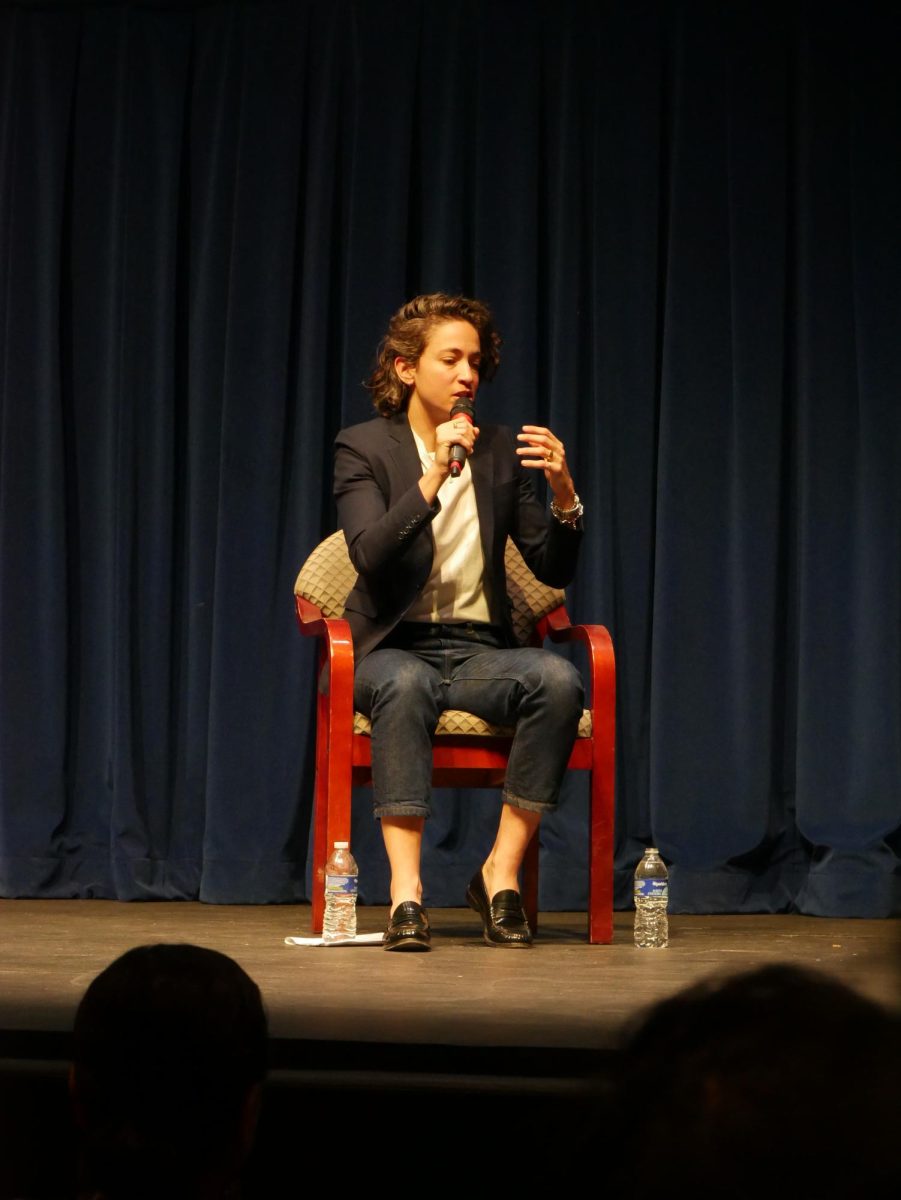Steven Barker
Opinion Editor
On Friday, May 3, the renowned gender historian and UC Santa Barbara professor Patricia Cline Cohen presented research on marriage inequality and reform in the decade preceding the American Civil War. While Cohen discussed the dominance of men in marriage and the relaxing of divorce laws in pre-Civil War America, the bulk of Cohen’s presentation was spent chronicling the lives of Mary Gove Nichols and Thomas Low Nichols and their interaction with the idea of free love in the 1850s. Students and faculty found these topics both engaging and illuminating.
“It was very interesting,” said Oliver Rink, a former history professor at CSUB. “This period is dealt with only as slavery and the Civil War, so here is all this other stuff – the first challenges to divorce laws are also happening at the same time.”
After positing a definition of marriage in the 1850s, Cohen proceeded to describe the legal inequalities women faced. Women were unable to own property; women lacked the right to vote; women could not sue or be sued in court. Inequalities also extended to the household.
“Men had the right to command the household, while women had the right to obey,” Cohen said.
Cohen then continued into a biography of the life of Gove Nichols. Becoming a Quaker at age 20, Gove Nichols proved to be a controversial figure in the Quaker community. Clinging to the belief that marriage was legalized prostitution, Gove Nichols toured throughout New England, presenting a 12-part lecture series on feminine matters, spanning from the effect tight corsets have on the female body to female masturbation and sexual practice. While Gove Nichols’s courage in addressing controversial matters publicly brought attention to the feminist cause, the explicitly sexual nature of her lectures forced her dismissal from the Quaker community.
Cohen concluded her presentation with a series of questions: What would the Nicholses think of today’s marriage-equality movement? Themselves advocates of free love, what would they think of what Cohen calls our “hook up society,” where sex outside of marriage has become more prominent?
After the presentation concluded, Cohen spoke to the cultural value her presentation holds.
“I think that the issues that Mary Gove was concerned with haven’t gone away today,” said Cohen.
“We inhabit a world that is much different than hers, where marriage isn’t the be-all and end-all of life for women anymore, and where sex outside of marriage is not punitive anymore. But still, I think there is a lot to be learned from thinking hard about how people negotiated their fundamental behaviors in life,” Cohen added.
Soon after, Cohen countered the notion that history is only valuable as a utilitarian mechanism for learning about today’s life. For her, the value of history stems from history’s ability to record the change that has occurred through time.
“The value of history is not so much that it has lessons that are similar to things today; rather, we see that things were so different in the past,” Cohen said. “We enlarge our sense of the possible to know that human history has been different – that people 150 years ago in this country thought in different ways about marriage, about sex, about women’s relationship to men and men’s dominance over women. On the one hand, it’s good to see how much has changed, but it’s also good to think about what hasn’t changed.”
For some students and faculty alike, Cohen thorough research left a favorable impression.
“It was an unusual topic, thought-provoking, and the presenter seemed really enthusiastic about it,” Leah Avila, a senior history major, said.
“I think it was really well researched,” added Jennifer Delgado, a freshman liberal studies major.
Cohen’s presentation – the third presentation of CSUB’s History Forum this school year- also concluded the History Forum. Presentations for the History Forum will resume at the beginning of the next school year.











